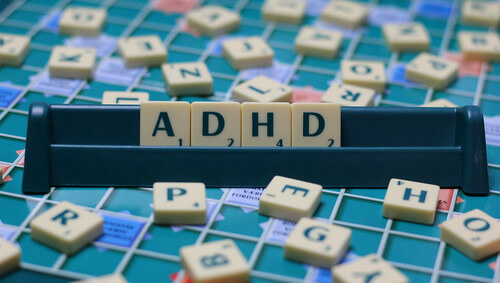The Coexistence of Anxiety and ADHD
Anxiety and ADHD very often come together. The term ‘comorbidity‘ refers to the presence of two or more conditions in a person at one time. Anxiety is commonly seen as a comorbid condition in those with ADHD. This can manifest as a separate issue, such as generalised anxiety disorder, or as a result of ADHD itself.
Anxiety can exacerbate ADHD symptoms, creating a cyclic effect where each condition intensifies the other. ADHD alone involves elements of anxiety, particularly due to the uncertainty and disorganisation it often brings.
Diagnosing and Treating Comorbid Conditions
Distinguishing between anxiety and ADHD symptoms is crucial for effective treatment. Clinicians must carefully assess which condition should be addressed first. A holistic approach is recommended, which means to consider the person as a whole, not just their mental health needs.
Managing these conditions effectively involves a combination of lifestyle adjustments, psychotherapy, and possibly medication.
Personalised Treatment Plan Comorbid ADHD & Anxiety
Each person’s needs are unique, demanding a tailored treatment plan to each individual. This plan typically encompasses lifestyle changes, psychological therapy, and pharmacological treatment. Regular follow-ups are essential for monitoring progress and adjusting the care plan as needed.
Psychotherapy and coaching are vital for understanding and managing ADHD, empowering individuals with knowledge and strategies to navigate daily challenges. Similarly, cognitive behavioural therapy (CBT) provides valuable tools for addressing the thought patterns and behaviours associated with both anxiety and ADHD, building resilience and coping skills.
Medications, particularly stimulants, are often the first-line treatment for ADHD, offering significant improvements in focus and control. However, in cases where anxiety is also a factor, a separate, tailored treatment approach for anxiety may be necessary to ensure comprehensive care and optimal outcomes for the individual.
Lifestyle Changes to Improve ADHD & Anxiety
Key lifestyle changes include improving sleep, dietary habits, and increasing physical activity.
Creating a structured routine is crucial. Utilising diaries, apps, or calendars helps in organising daily tasks. Prioritising tasks and allocating specific times for them during the day can significantly enhance focus and productivity.
Physical activity boosts brain function, neurotransmitter levels, and overall well-being, making it a crucial component in effectively managing ADHD symptoms and enhancing the effectiveness of other treatments.
Many people overlook the critical role of quality sleep, not realising that inadequate sleep can increase tiredness, exacerbate mood disorders, and diminish focus.
Support from Family Members

By: Rachel Kramer
Family support is invaluable in managing ADHD and anxiety. By educating themselves about these conditions, family members can gain a deeper understanding of the daily hurdles their loved ones face, fostering empathy and stronger emotional connections.
Also, offering consistent encouragement and positive reinforcement can significantly boost the individual’s self-esteem and motivation. And, providing assistance in organising daily routines and tasks can greatly alleviate the stress and disorganisation often associated with ADHD, leading to a more harmonious and supportive home environment.
Understanding and managing the interplay between anxiety and ADHD requires a comprehensive approach, encompassing accurate diagnosis, tailored treatments, lifestyle modifications, and supportive psychotherapy. With the right strategies and support, individuals with these conditions can thrive.
___
At Harley Therapy London Clinics, we specialise in offering comprehensive diagnostic assessments and personalised treatment plans for adults with ADHD. We also provide dedicated support for children navigating ADHD. Our team of experts, including the esteemed Dr. Alessandra Cappai, is committed to delivering exceptional care and support to patients.


